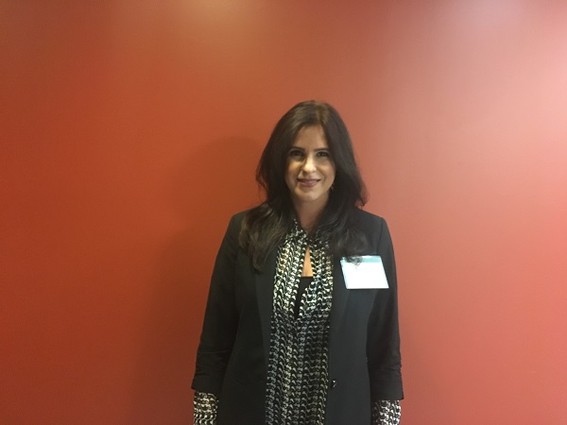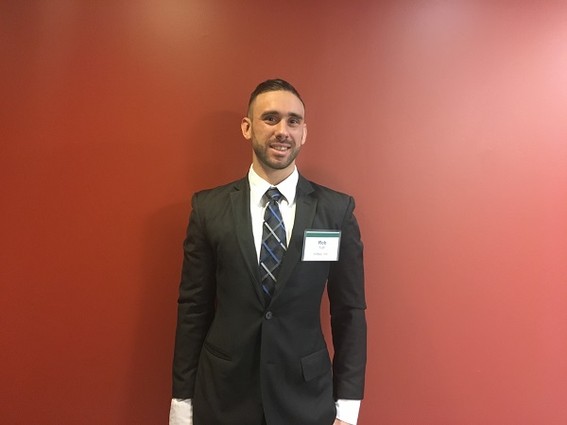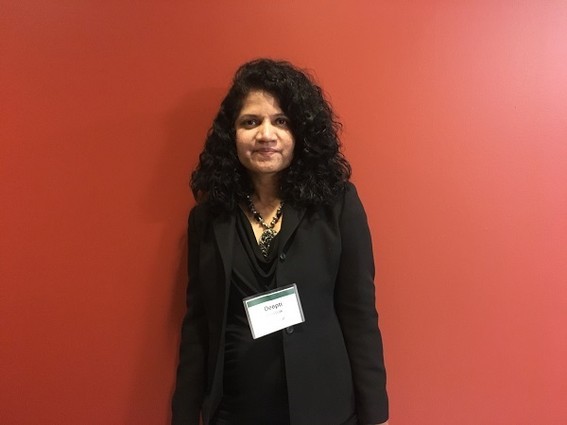Angels, VCs and Founders “Speed Date” at NJ EDA’s Founders & Funders Event, Part Two
NJTechWeekly.com attended the most recent New Jersey Founders & Funders event, at the Commercialization Center for Innovative Technologies (North Brunswick) at the end of October.
Founders & Funders is probably one of the best-received programs that the New Jersey Economic Development Authority (EDA) offers. It is based on a simple premise: startups in New Jersey need a way to obtain warm introductions to angels and venture capitalists, and angels and venture capitalists who want to invest in New Jersey need deal flow.
So, twice a year, the New Jersey EDA puts on a program that matches up angels and VCs with New Jersey tech and life-science startups. During the event in October, more than two dozen startup founders met angel and VC investors in 10-minute, one-on-one “speed dating” sessions to discuss strategy, business models and funding opportunities.
NJTechWeekly.com spoke to some of the founders who participated. This is the second article in our coverage of the event, based on our interviews.
Jennifer Crews, of FLOCK

NJTechWeekly.com interviewed Jennifer Crews, a longtime member of the New Jersey tech ecosystem who came to Founders & Funders to pitch her startup, FLOCK (Red Bank).
FLOCK is a shared intelligence system for families. “We are solving for the decision fatigue and information overload that is associated with all of the mental gymnastics that go into organizing busy families, especially when both parents have a career.”
Crews noted that organizing a family can be mentally exhausting. FLOCK accounts for that by taking all the information from the family, making decisions on the backend and sometimes even taking action on behalf of parents.
To give an example, Crews said that trying to coordinate schedules is one of the things that FLOCK does well. FLOCK takes information from all the members of the family, consolidates all of the calendars and tells parents where the gaps are and where scheduled activities overlap. It then gives the parents only the particular information that they need, so they don’t have to go through all the decision making.
“It’s the 80/20 rule. It doesn’t help with everything, but some 80 percent of decisions that parents make can be made by the system, leaving parents to make the 20 percent of outliers.”
Crews said that her meetings had gone well. “I think what’s good about this event is that it gives founders a chance to get some quick reactions from investors. Sometimes the first reaction is really the right one. So I got some really good feedback and challenges to my thinking that were helpful. And I’ll definitely take them into account as I think about how I move forward. I also got some very clear steps on how to follow up.”
She noted that she knew several of the investors before she came to these meetings. “Making a personal connection really helps. Being an entrepreneur can feel kind of isolating sometimes, so building a network can really help with that.”
Rob Toth, of Virbio

Rob Toth, president of Virbio, a medical device startup out of Rutgers University, said that the name “Virbio” captures the essence of his company: it stands for “virtual biopsy.” “It’s essentially a technology that is going to let doctors peer into your cells noninvasively to allow them to decide where to cut for a biopsy.”
He described Virbio as an early-stage medical device company that is working with Rutgers on the underlying technology: advanced optics that allow operators to zoom in on the cells live. “We have an exclusive license to the technology, and we are working on taking it through the FDA process and getting some trials,” he added.
When we spoke with Toth, he’d already had several interviews. Everyone was interested in the technology, he said. But, he added, “I think for this investment, we have to find someone who has medical device expertise, background or interest. It’s different from a lot of other industries because the funder has to know about navigating that whole environment.”
Toth did get some useful advice from investors, however. A lot of it had to do with creating a viable business model that takes into account insurance laws and how they change. “You have to make sure this is constantly on your mind when you are developing the right business model throughout the entire process, from conception all the way through commercialization,” he noted.
Deepti Deepak, of Appto

Deepti Deepak, an NJIT graduate and a computer science engineer with 17-plus years of experience in the development and management of products for the mobile, telecommunications, audio and medical industries, was at the Founders & Funders event to pitch Appto (Princeton), a Software-as-a-Service B2B communications platform aimed at retail and healthcare businesses.
Basically, Appto replaces nested customer-support menus. “We provide a menu through a virtual number or we would provide a menu which will go on an app. People don’t like going through the automated system menu, so we take that out and put it as a list, which makes it that much easier for people to use. Or we can put it on the company’s app as an app menu.”
We asked Deepak for a use case, and she said, “We gave a retailer a virtual number, and they put it on their website to support the customer.” If no one with the right level of authority is there to pick up the call when it comes in, the system will take over. In the case of a gym, for example, people will get text messages on their phones asking, “Do you want to book a party? Are you looking for open jump times? Or something else?”
“Once people get the menu with the different things that the business offers, people easily text back. We were surprised that people started making up their own hashtags, which then could be added to the menu. This cannot happen when it comes to automated system menus. Here, consumers are more empowered to connect to a business,” she said.
Deepak had had four meetings by the time NJTechWeekly.com interviewed her. Some of the investors asked for referral customers, which the company has. One angel asked how Appto is marketing, given that the company is B2B. “They said they could probably connect us to some marketing resources.” Another bit of advice Deepak received was that she needed to refine her pitch to provide information about the unique service the business is offering.

